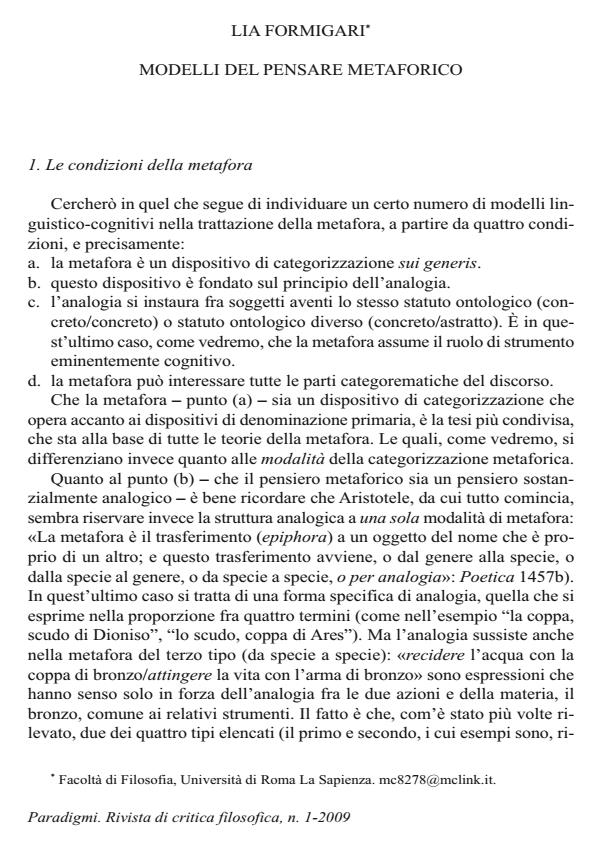Modelli del pensare metaforico
Journal title PARADIGMI
Author/s Lia Formigari
Publishing Year 2009 Issue 2009/1
Language Italian Pages 11 P. 15-25 File size 66 KB
DOI 10.3280/PARA2009-001002
DOI is like a bar code for intellectual property: to have more infomation
click here
Below, you can see the article first page
If you want to buy this article in PDF format, you can do it, following the instructions to buy download credits

FrancoAngeli is member of Publishers International Linking Association, Inc (PILA), a not-for-profit association which run the CrossRef service enabling links to and from online scholarly content.
Models of Metaphorical - Thought Through an apparently uniform development starting from Aristotle’s argumentation theory, more or less strong versions of the cognitive import of metaphor have been advanced. A first turning point can be summarized as the move from external to internal representation (17th and 18th centuries), when metaphor came to be seen, not as an optional linguistic device, but as a necessary modality of categorization, a form of conceptualization complementary to abstraction and, as such, as a primary principle of lexical semantics. A second turning point is still under way. Post-Chomskyan semantic theories have extended the power of metaphor to the formation of basic categories, such as space, time, causation, force etc., that is, to forms rather than the content of knowledge. This opens a still unexplored, or partly explored, perspective in the philosophy of grammar and the analysis of grammatical categories in natural languages. Keywords: Analogy, Categorization, Grammatical categories, Lexical semantics, Metaphor, Philosophy of Grammar
Lia Formigari, Modelli del pensare metaforico in "PARADIGMI" 1/2009, pp 15-25, DOI: 10.3280/PARA2009-001002